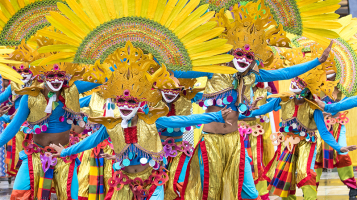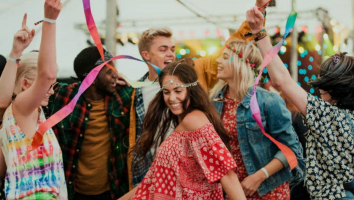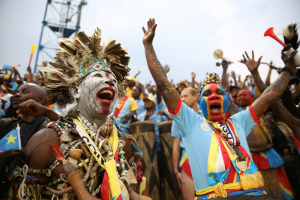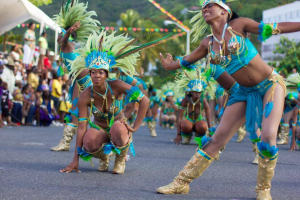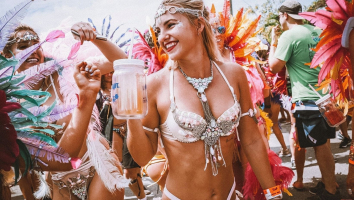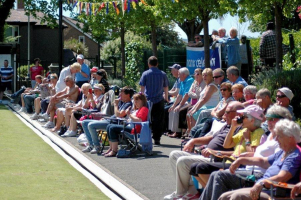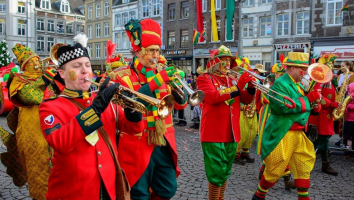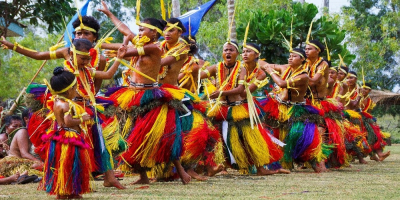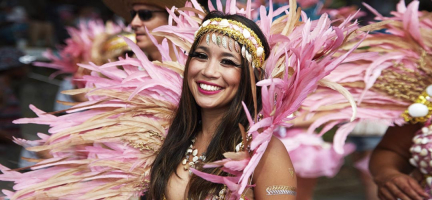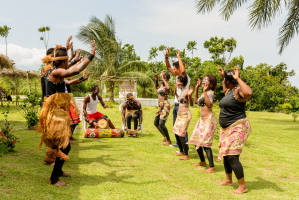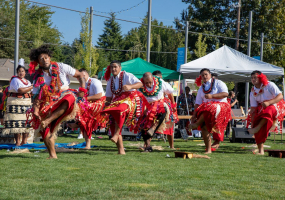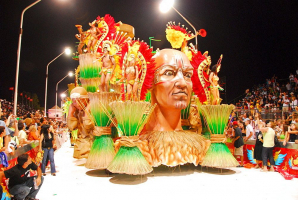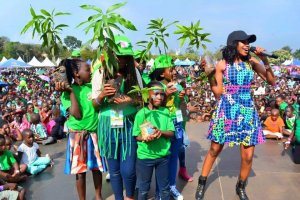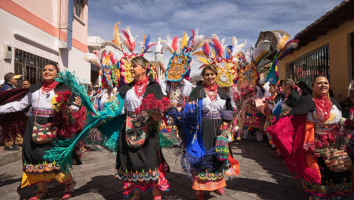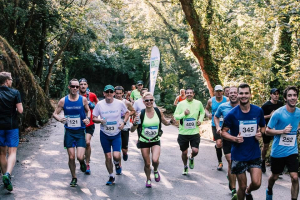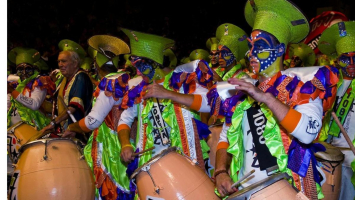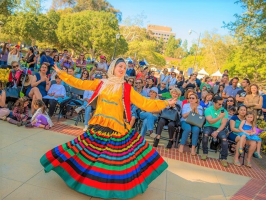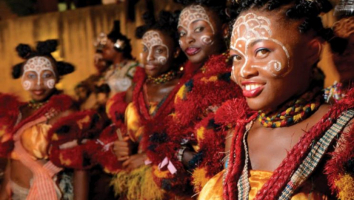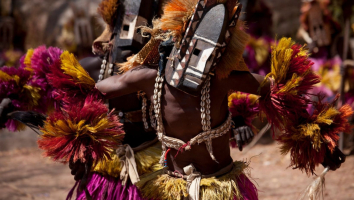Top 9 Most Famous Festivals in The Maldives
The following is a list of the most well-known Maldivian festivals that you should absolutely attend during your vacation. Participate in these festivities and ... read more...be a part of the Maldives' magnificent celebrations. Because the Maldives is predominantly Muslim, the majority of its celebrations are centered on Islam. Let’s discover the most famous festivals in Maldives now!
-
Ramadan is the ninth month of the Islamic or Lunar calendar, when Muslims observe 30 days of fasting, prayer, reflection, and charity. The last third of Ramadan is said to be even more auspicious because it is when the Prophet Muhammad is said to have received the first verses of the Koran (Quran). It’s one of the most famous festivals in the Maldives.
Because the Maldives' population is predominantly Muslim, government offices are only open from 9 a.m. to 1.30 p.m. By 3 p.m., many private workplaces have closed their doors. Resorts and hotels, on the other hand, are unaffected by the holy month.
Indeed, Ramadan is one of the greatest times to visit the Maldives since you may sample a variety of local cuisines that are only available during the festival. Many eateries have Iftar (evening meal for breaking the fast) specials on their menus. Ramadan liquids in unique tastes including rose, apricot, and kamardine are available. Cultural activities such as performances by music bands, belly dancers, and fire dancers are also part of the festival.
Date: 9th month of the Islamic or the Lunar calendar
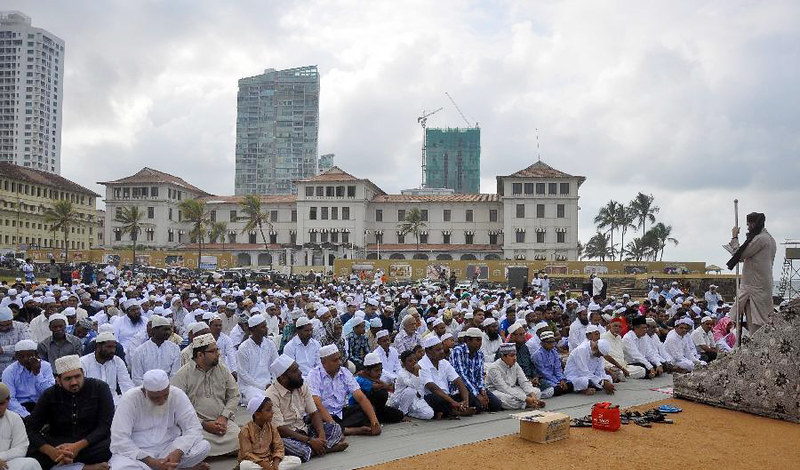
Source: Flickr Source: Jasmine & Dawoud -
The completion of Ramadan is marked by Eid-ul Fitr, also known as Kuda Eid, which falls on the first day of Shawaal (the tenth month) in the Islamic calendar. Throughout Islam, Eid-ul Fitr is a cardinal event that is celebrated with zeal in the Maldives. Kuda Eid applauds the discovery of the new moon.
In the Maldives, people spend the day with their families and relatives. Making a charitable offering (fitr zakaath) to the destitute and needy is a key action during this Eid. The festival begins with a morning prayer at the mosque, followed by participation in a sermon. Following that, the participants go to see their friends and relatives and share a meal. The festivities run three days in a row, and people participate in traditional celebratory games.
Date: 1st day of 10th month of the Islamic
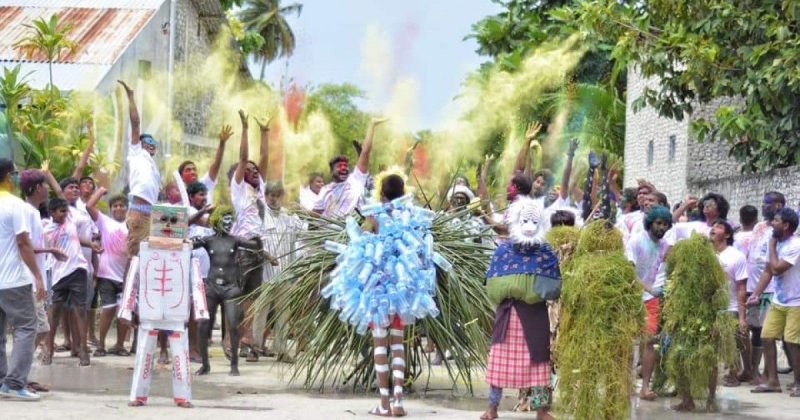
Source: Wego Travel Blog Source: Sikko's Photography -
Bodu Eid - one of the most famous festivals in the Maldives is observed on the Eid following the Hajj. Its significance stems from the significance linked with the Hajj, an annual Islamic pilgrimage to Mecca's holy city. It is a religious obligation that all Muslims must complete at least once in their lifetime.
Because of the Bodu Mas tradition, Eid ul Adha is referred to as Bodu Eid on numerous Maldivian islands. Bodu denotes a strong emphasis on the significance of this Eid. During the Bodu Mas festival, islanders assemble and fishermen catch a large fish built out of palm leaves. This custom is based on an ancient legend in which a big fish (Modu) and Maali (ghosts) emerged from the sea.
With the help of a holy man, the villagers were able to catch the fish after a hard fight. As a result, Maali neshun, a style of dance performed by a group of individuals painted and dressed as ghosts, is included in the celebration.
Date: July 31st
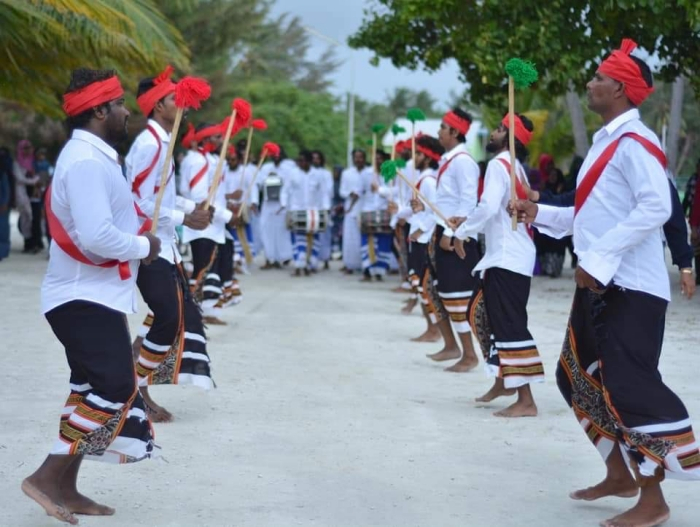
Source: Maldives Insider Source: Island Beauty -
Eid-ul-Adha is observed on the tenth day of the Islamic calendar's 12th and final month, Zul-Hajj or Zil-Hajj. The event, also known as Eid al Adha, is celebrated as a sacrifice feast. This is a time to commemorate Ibrahim's willingness to sacrifice his beloved son Ishmael to Allah.
The animal sacrifice to Allah, which is afterwards utilized to cook the feast and share it with the impoverished, is a key tradition associated with this holiday. Eid-ul-Adha is celebrated in the same way it does in any other country, with morning prayers, exchanging gifts, inviting friends and family to dine together, and so on.
The Maldives, on the other hand, have some unique ways of celebrating, such as street carnivals with people dressed in bright colors, dancing, singing, and other cultural events. There are other sporting events based on the Maldives' traditional game, bai Bala.
Date: 10th day of the final month of the Islamic
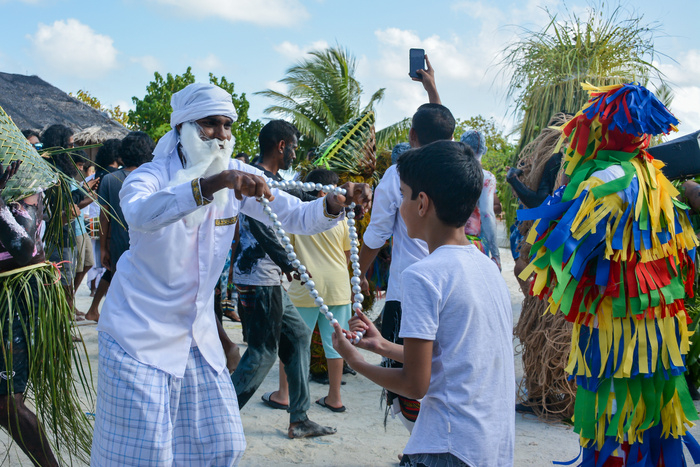
Source: Maldives Insider 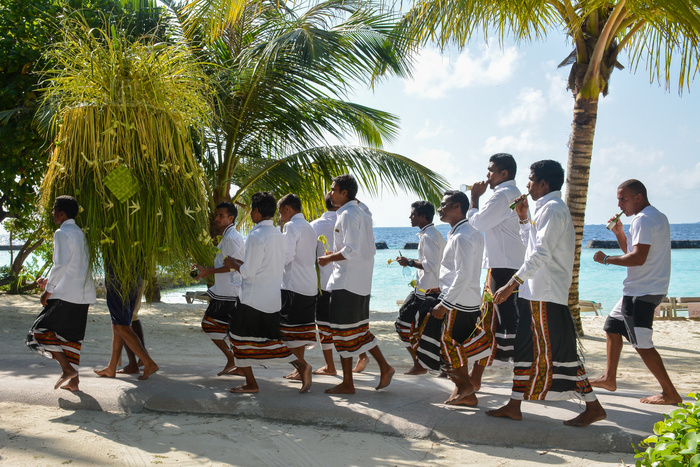
Source: Maldives Insider -
Mawlid, which means "Prophet's Birthday" (also Maw is the birthday of Prophet Muhammad, the founder of the Islamic faith. It is observed in the lunar calendar month of Rabee-ul-Awwal (3rd month). It is observed by Sunni Muslims on the 12th day, whereas Shia Muslims observe it on the 17th day.
Mawlid is observed in a carnival-like manner, with a massive street parade and the mosque being decorated. Scholars and poets read classic Sufi poems as a show of devotion for the Prophet. At communal gatherings, stories about Muhammad's life are often recited. The day is brought to a close by a charitable donation of food and money to the poor.
If you want to see one of the most beautiful and well-known festivals in the Maldives, this is the one to go to!
Date: 3rd month in the lunar calendar
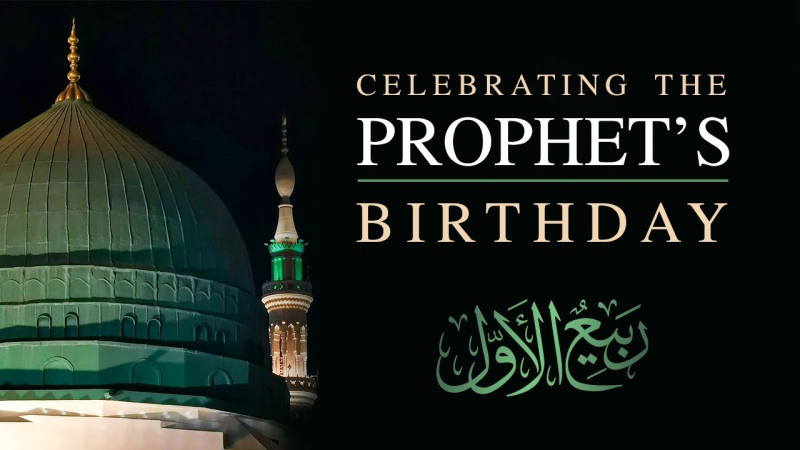
Source: Eman Channel 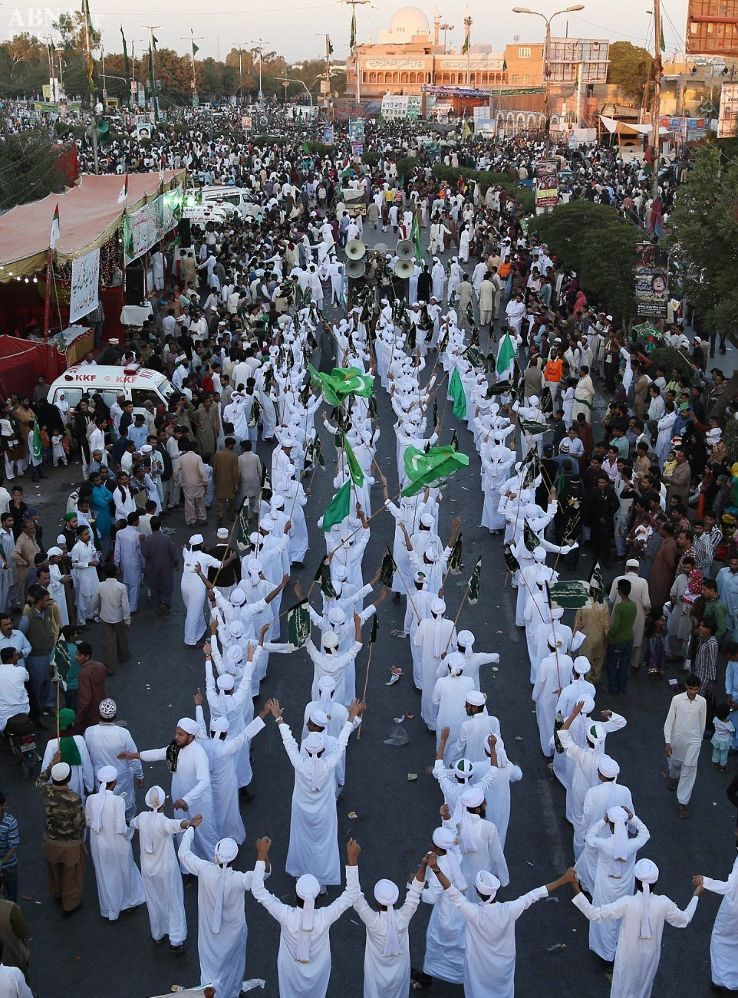
Source: HelloTravel -
The Day Maldives Embraced Islam is a religious unification holiday that takes place on the first day of Rabi al-Thani (4th month) in the Islamic calendar. Lectures, speeches, and religious rites about the history of Islamic conversion are among the festivities.
Though the Day Maldives Embraced Islam is commonly assumed that his conversion was motivated by a desire to establish commercial links with Arabian countries, there are numerous other intriguing versions of the narrative. According to folklore, every month a sea-demon named Rannamaari rose from the sea, threatening to destroy the hamlet unless a virgin girl was sacrificed. As a result, young girls in the village were often sacrificed. But one day, Yousef Shamsuddin-al Tabrizi, an Islamic pilgrim, dressed himself as a girl and waited for the demon. While he waited, he recited words from the Quran, which caused the demon to flee.
National festivals in the Maldives, like those in the majority of colonized countries, are a reflection of the country's battle for independence. For decades, the Sultanate, Portugal, the Dutch, and the British ruled the Maldives. And it is for this reason that the struggle for freedom, independence, and subsequent big advancements are key causes to rejoice for them.
Date: 1st day of 4th month of the Islamic
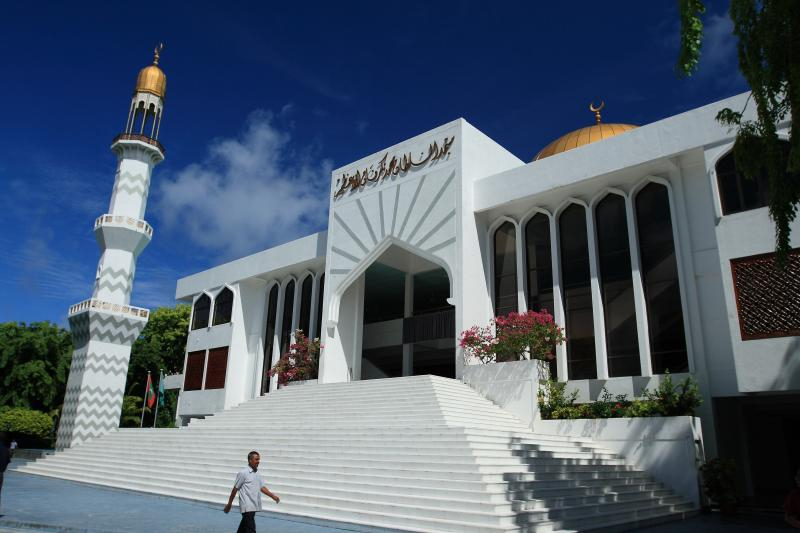
Source: Yabiladi Source: Presidency Maldives -
On July 26th, the Maldives will celebrate their entire freedom. Parades by the National Security Services and the National Cadet Corps are part of the festivities. There are also performances by students from local schools. Independence Day is one of the most famous festivals in the Maldives.
Maldives was a British colony until 1887, when it was upgraded to a British Protectorate, allowing the country to be free of foreign interference in its internal affairs. However, the British continued to have control of international affairs in exchange for British security. The Maldives obtained complete independence on July 26th, 1965. The population of the Maldives was only 97,743 when the then Prime Minister, Ibrahim Nasir, signed the deal with the British for independence.
The National Security Services and the National Cadet Corps parades are the main attractions on Independence Day. Usually, these marches are followed by performances by schoolchildren dressed in bright costumes.
Date: July 26th
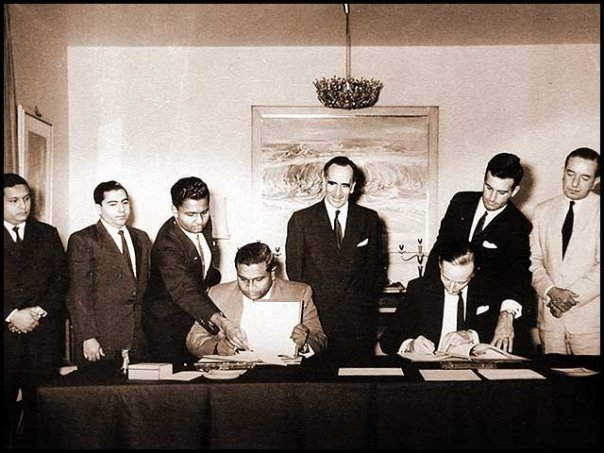
Source: Maldives Independent Source: Ahmed Rizwee - Maldives -
The Maldives national day (also known as Qaumee Dhuvas in Dhivehi) is a significant day since it commemorates Muhammad Thakurufaanu Al Auzam's triumph over the Portuguese occupation in 1573. According to the Islamic calendar, the Maldives' National Day falls on the first of Rabee ul Awwal, the third month of the Islamic calendar.
In 1558, the Portuguese colonial power attacked the Maldives, assassinating the Sultan and establishing colonial control. In 1573, Muhammad Thakurufaanu and his comrades landed in Male', ending the Portuguese colonial reign of fifteen years.
Since then, the 1st of Rabee ul Awwal of each Islamic year has been designated as the Republic of Maldives' National Day. Parades and route marches are held on the streets of Male and on the islands to commemorate the day. Across the island nation, military parades, political speeches, and flag-raising rituals are held on this day.
Date: 1st day of 3rd month of the Islamic
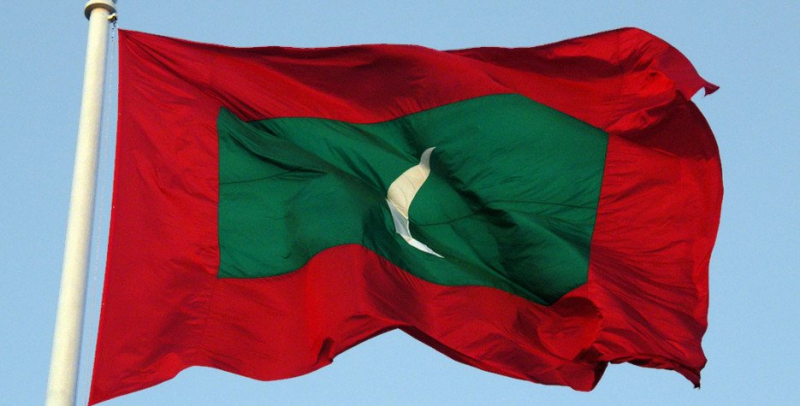
Source: Office Holidays Source: Eydhafushi Times -
On November 11th, the Maldives commemorates the end of the Sultanate's long reign and the establishment of a republican government in 1968. Once every five years, a new Maldivian president is appointed on this day. Official events, like speeches and parades, were held across the country as part of the commemoration. This is the best time to try special Republic Day meals such as huni hakuru folhi, a type of coconut cake; bodibaiy, a super-sweet rice snack; and masroshi, a fish-stuffed pancake.
A referendum was held on March 15th, 1968, just a few years after independence, in which 81 percent of the population opted to replace the Sultanate with a republic. The Republic Day was officially declared on November 11th, 1968. The final sultan's Prime Minister, Ibrahim Nasir, became the first president of the new Maldives Republic.
Date: November 11th
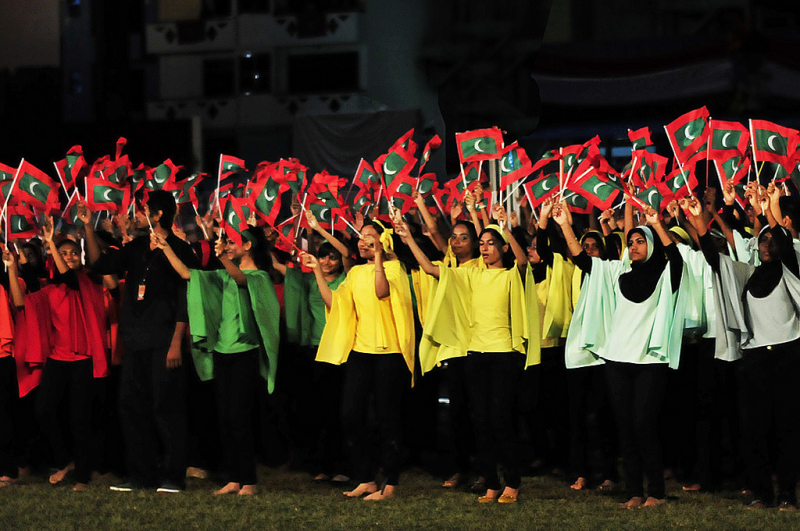
Source: Colombo Plan Staff Collage Source: Presidency Maldives











